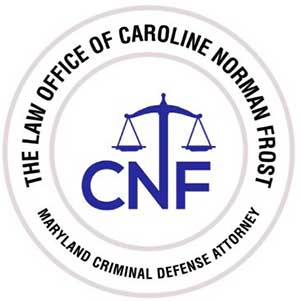Possession of a Controlled Dangerous Substance to Wit: Cocaine, is governed by Maryland State Code Section 5-601 “Possessing or Administering Controlled Dangerous Substance”
Penalties for possession of cocaine:
Simple Possession of Cocaine in Maryland is a Misdemeanor. Individuals caught possessing small amounts of cocaine will be charged with CDS Possession under Maryland State Code Section 5-601. Upon conviction for this charge, a defendant will be subject to imprisonment of up to four years and/or a fine up to $25,000.
Will I be charged with simple possession as a misdemeanor, or will I be charged with distribution?
In Maryland, the possession of a small amount of cocaine (28 grams) or less is a misdemeanor. Cocaine is a Schedule II narcotic controlled dangerous substance, and the penalties for the possession, trafficking, or sale of cocaine increase in severity depending on the weight of drugs seized, whether you have prior criminal convictions, and the location of where the act(s) occurred. As in most cases, the prosecutor is going to consider your criminal history before offering less jail time, and the Judge will consider the same. Prior drug charges will certainly have an impact on the penalty the prosecutor and/or Judge deems appropriate in any given possession case.
Drug Treatment Programs and Drug Court:
If you are found guilty of misdemeanor cocaine possession, most Judges will require you to enter into a drug treatment program, whether it be during supervised probation, unsupervised probation, or through some other means. Most jurisdictions will also offer drug court as an alternative to jail in some cases, depending on how lengthy your record is and depending on other factors that make you a good candidate for drug court or not. Your attorney will need to talk to the prosecutor before sentencing in order to coordinate your entrance into drug court and you will have to sign the terms of agreement to enter the drug court program. You will also have to take random urine tests if you are in drug court and most drug treatment programs.
Penalties for cocaine trafficking: Possession With Intent to Distribute
Under Maryland State Code Section 5-602, Possession with Intent to Distribute is considered a felony. If you are charged under this section, in relation to cocaine distribution, you face up to five years in jail and/or a $15,000 fine.
Possession With Intent to Distribute in a School Zone:
Police Officers can add additional charges with more punitive consequences if you are stopped and charged in a location that is within 1,000 feet of a school-owned property. Under Maryland State Code Section 5-627, the law makes it clear that school does not have to be in session or operating at the time you are charged or when the act occurred. If you are charged under Section 5-627 for Possession with Intent to Distribute, the penalty you face increases to imprisonment up to twenty years and/or a fine of up to $20,000.
Drug Kingpin Charges:
Drug Kingpin charges are defined under Maryland State Code Section 5-613. A Drug Kingpin means an organizer, supervisor, financier, or manager who acts as a coconspirator in a conspiracy to manufacture, distribute, dispense, transport in, or bring into the State a controlled dangerous substance. Drug Kingpin charges are brought against defendants that are alleged to be in the higher ranks of a drug conspiracy. A Drug Kingpin is usually an authority figure over other lower ranked drug dealers. If someone is charged with conspiring to manufacture, distribute, dispense, transport in, or bring into the State a controlled dangerous substance in an amount listed in Maryland State Code Section 5-612 then they will face a felony Drug Kingpin charge and upon conviction they will be subject to imprisonment for not less than 20 years and not exceeding 40 years without the possibility of parole or a fine not exceeding $1,000,000 or both.

